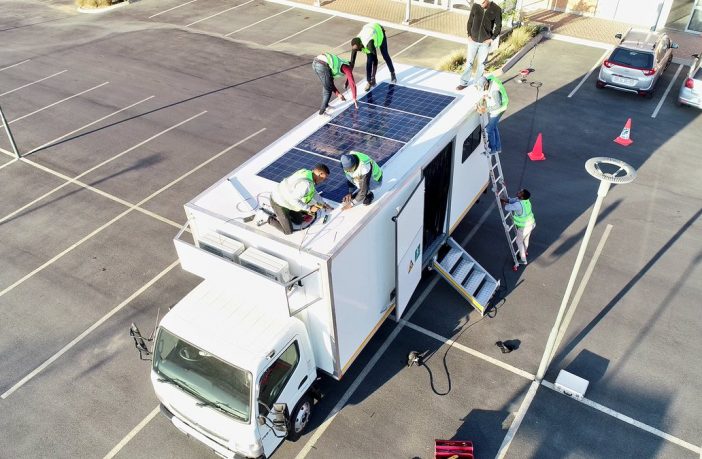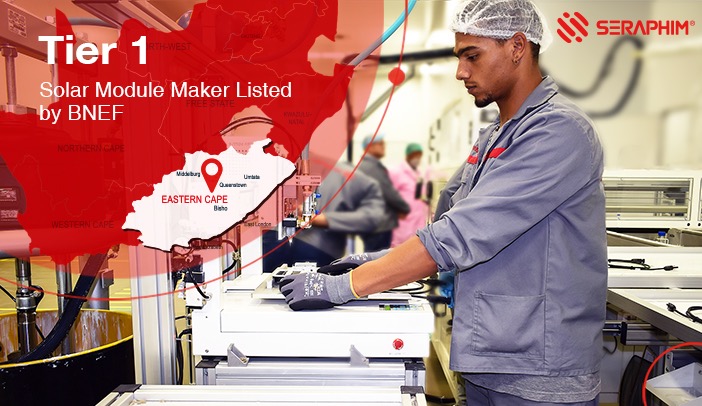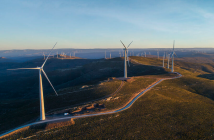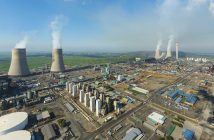- In times of unreliable power supply due to planned and unplanned power outages, consumers are often left to scour for alternatives, which often come at a high price for most.
- Enter Lamo Solar, a young black-owned solar energy company that is working towards making renewable energy accessible.
So impressive is the six-year-old company’s model that it received the stamp of approval from President Cyril Ramaphosa at an Investment Conference held in Gauteng in October. The President lauded the company for being one of the small, medium and micro-sized enterprises (SMMEs) that are shifting ground as a creative innovative business.
“Lamo Solar was founded with the sole intention of increasing access to electricity to predominantly rural parts of not only South Africa but also sub-Saharan Africa,” said the company’s CEO, Tshibvumo Sikhwivhilu.
This comes as South Africans have faced several bouts of loadshedding over the course of the year, coupled with negative economic data.
Investor interest continues even in an economic slump
In the recent Medium Term Budget Policy Statement (MTBPS), the indication from National Treasury was that it was expecting the Gross Domestic Product (GDP) to shrink to 0.5% in 2019, compared to an earlier projection of 1.5%.
The revision of the country’s growth prospects, together with Moody’s Investor Services’ decision to revise South Africa’s long-term foreign and local currency debt ratings to ‘Baa3’ and also revised the outlook to negative from stable, could compel one to think that investors will head for the hills, reported SAnews.
At the conference, presided over by President Ramaphosa, South Africa saw investors commit R363 billion, excluding an additional R8 billion that is still subject to regulatory or board approvals.
During the conference, President Ramaphosa emphasised the importance of government and the public sector providing support to SMMEs.
He said the investment drive is aimed at creating jobs as well as creating other economic opportunities as businesses are established to produce and supply products and services.
“I think the whole point in driving and promoting the investment case for South Africa was a clear intervention by government to accelerate and spur economic growth in order to address unemployment,” said Brand South Africa’s general manager for communications, Thoko Modise.
The conference also saw an increase in commitments from South African businesses at R262 billion in 2019, compared to just over R157 billion at the inaugural conference last year.
Small solar company shines through
The commitments made include projects in markets such as mineral beneficiation, renewable energy, agro-processing, and oil and gas.
Sikhwivhilu, together with friend and business partner Elmond Khoza, founded Lamo Solar in 2013 as a spin-off from a final year project in 2013. The Midrand-based company currently employs 12 people.
Meanwhile, Small Business Development Minister Khumbudzo Ntshavheni said the conference also resulted in commitments being made for the small business sector.
“The investment conference was able to make commitments to grow the economy but also to make particular commitments on how SMMEs will participate in those value chains. From ourselves and partner department, [the]Department of Trade, Industry and Competition, we are then going to assist SMMEs to really participate in the value chains and also to enable them to effectively participate where they have been roped in already,” she said in an interview with SAnews.
Lamo Solar attests to South Africa’s advantage of plenty of sunshine when coming to renewable energy.
“What gives us a good competitive advantage over other competitors in other parts of the world in the sector is that South Africa, and Africa as a continent, has some of the best sun radiation as compared to other parts of the world,” said the 30-year-old electrical engineer.
The South African climate, he said, is conducive for renewable power.
“It gives us a favourable advantage using the very same technology that exists in Europe or Asia but being applied in conditions that are better suited than they were designed or manufactured,” said Sikhwivhilu.
Reaching for a new level of investment and financing
President Ramaphosa in April 2018 announced his plan to raise $100 billion – equivalent to R1.2 trillion in new investment over five years.
The President also highlighted that the success of the conference cannot only be measured by the amounts pledged by investors but is also measured by the difference it makes in the lives of citizens.
This is particularly true for those who are poor and unemployed.
Sikhwivhilu highlights that product affordability has been of concern for the company, as South Africa’s rural populace is largely poor.
“Solar technology, as an outright purchase is quite expensive. Very few people who are driving cars today would be able to drive them if they had to buy them outright,” he said.
Just as there are various vehicle financing mechanisms, there is a need for the adoption of a similar model in the renewable energy space, he said.
Sikhwivhilu said the company was attending the conference in an effort to be able to raise enough capital so it can sell its systems and not necessarily the technology.
The bold policy framework announced by the government has helped the company—which also provides training in the design, installation, maintenance and operation of solar solutions—see the complete installation of a PV mini-grid in the Eastern Cape.
Completed this year, the PV mini-grid has brought electricity to 70 households in Upper Blinkwater.
This project was implemented with the support of the Eastern Cape provincial government and the German development agency, GIZ. The project saw the homes of which 90% rely on social grants, receive electricity at cheaper rates.
To recover the costs involved, Lamo Solar partnered with the Raymond Mhlaba Municipality, which sells prepaid solar electricity vouchers to the households connected on the grid.
Government, said Minister Ntshavheni, is currently putting together a database aimed at assisting small business.
“We are also doing a national database so that we can get all small businesses registered per region per town, per product they manufacturing and check what support we need to give them. We are committed to a generation of job creators and move people from job seekers to job creators,” she said.
Author: Nicolette Pombo-van Zyl
This article was originally published on ESI Africa and is republished with permission with minor editorial changes.
Seraphim Solar has a solar panel factory in South Africa servicing the African continent. Read more
Earlier this year, Seraphim climbed into Bloomberg’s Top 10 Tier 1 ranking making their modules highly bankable. EPC’s and IPP’s operating in South Africa and the rest of the African continent are encourage to place orders with Seraphim in order to support local industry and job creation.
Prices and range are highly competitive catering for the small and large scale projects. The Seraphim sales department is ready to take your enquiry, simply drop them a mail: sales@seraphim-solar.co.za or call the sales team on +27 87 373 0813













1 Comment
We are small local emerging level 1 Company we are interested in going JV with your Company in order to up grade us.
We are interest in submitting expression of interest to build 30 MW Solar Plant in our area.
If you are interest we propose to have a meeting with you.
Regards
Motodi Phasha
083 586 9446